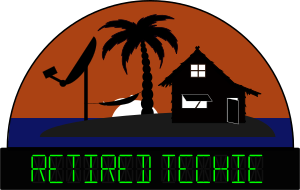Retired Techie
Getting older, not necessarily wiser!
Under Reported Linux Desktop Adoption Issues
Published on December 8, 2022 at 4:28 pm by LEWIntroduction
I experienced an epiphany recently concerning the Linux Desktop Metaphor. The problem with adoption of the Linux desktop may have some issues that considerably different than what most people talk about.
I started my Linux journey with Linux-Mandrake, before it became Madiva (after a rather frivolous 2004 law suit). So I have been doing Linux in one form or another for quite a while now. Being somewhat technically inclined I was not afraid to jump in with both feet.
During my Linux journey I have run across all the stereotypical issues and reasons for avoiding the Linux desktop; Linux is not a company that can provide security and support, does not support popular software, don’t want to learn/use the terminal, to much choice is confusing, lack of gaming support, does not come pre-installed on most computers, dose not work with all hardware, and Linux users are elitist snobs. There are quite a few more reasons I could list, but I figure you get the point.
Linux has come a very long way since I started using it, and many of the once valid objections are not as valid today, with the possible exception of the elitist snobs. However adoption of the Linux desktop is still relatively low.
I have a story I want to share that may provide some additional perspective.
The Story
Being away from home for a variety of reasons and various lengths of time, I have my niece handling some of my affairs. She was using a fifteen year old laptop that had a bad battery and could barley run Windows 7. I should note that she was using Libre Office, not Microsoft Office also. I had come into possession of a newer laptop (only seven years old), which I reconfigured for her use. This laptop did an okay job running Windows 7, but struggled running Windows 10 smoothly.
I deleted Windows and loaded Debian 11 (Bullseye), along with the JWM for the Window Manager and LightDM for the Display manager. I set up all the same software that she was using on the old Laptop. There was a network manager for wifi, clicking on the clock brought up a calendar, I tweaked the interface so it looked very close to Windows 7.
Basically the newer laptop did everything the old one did and it did it in the same manner. There was one difference, it ran fast and smooth (which it had not done under Windows 10).
I gave it to my niece and she used it for about a month. Note that my niece is not a computer geek or power user. Then she asked me if I could put Windows 10 on the laptop. When I asked her why, she said she did not know how to use Linux. I asked her what she did not know how to do, and she was unable to answer the question. I told her Windows 10 was going to make the laptop slower and more difficult to use. She did not care.
I reluctantly changed the OS. But also started to watch more closely the usage the laptop was getting. And this is where I found things got interesting.
I noticed other people were using the laptop. I am not sure how common this practice is, as I very rarely let anyone else use my computers. But I came to the conclusion it was peer pressure, plain and simple. Her friends wanted to do things that she did not do, and were finding it difficult or impossible to do under a Linux based Operating System. So they pressured her to switch.
I did not question what nefarious or strange activities (it was probably some new social app or something similar)they were up to that required Windows, but this was obviously the reason for the switch. Nothing to do with actual usability
Conclusion
I don’t know how prevalent it is among younger people to share computers. However I do believe that one of the reasons I never see stated for not adopting Linux is peer pressure. I image it is a little different with MAC, as you also have a substantial hardware investment.
I guess for me it is a little different. I do have a guest account on my laptop, but if you do not want to use Linux, then you are out of luck, so don’t ask to use it.

Add New Comment